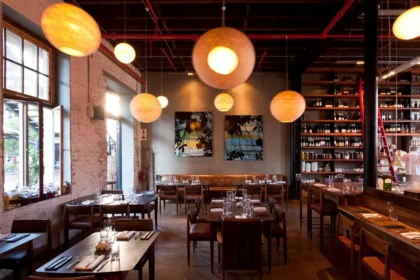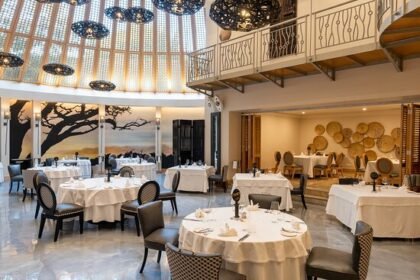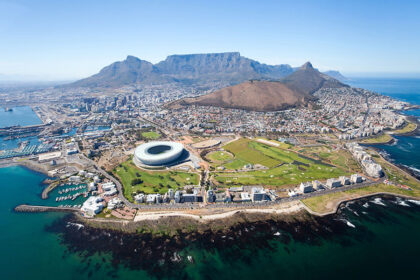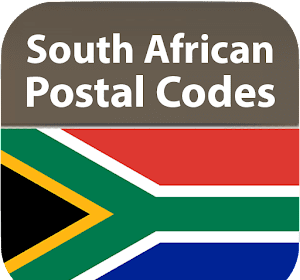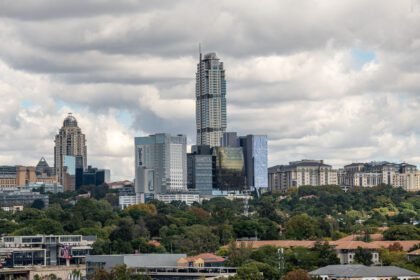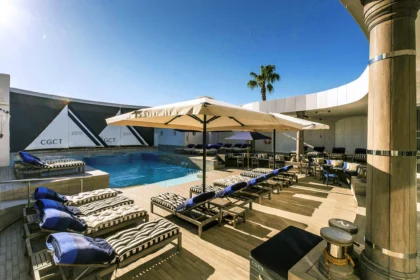Understanding the cost of living in South Africa has become increasingly important for both residents and those considering relocating to the country. This comprehensive guide breaks down essential expenses, regional variations, and practical insights for managing your budget in 2024.
Housing Costs
Rental Markets
Major Cities (Monthly Rates)
- Johannesburg
- Studio apartment: R5,000 – R7,000
- One-bedroom: R6,500 – R9,000
- Two-bedroom: R8,000 – R15,000
- Cape Town
- Studio apartment: R7,000 – R9,000
- One-bedroom: R8,500 – R12,000
- Two-bedroom: R12,000 – R20,000
- Durban
- Studio apartment: R4,500 – R6,500
- One-bedroom: R5,500 – R8,000
- Two-bedroom: R7,000 – R12,000
Property Purchase
Average Home Prices
- Entry-level homes: R700,000 – R1.2 million
- Mid-range homes: R1.2 million – R2.5 million
- Luxury properties: R2.5 million+
Additional Housing Costs
- Security services: R500 – R1,500 monthly
- Building insurance: 0.5% – 1% of property value annually
- Property taxes: Varies by municipality
- Maintenance: 1% of property value annually
Utilities and Services
Basic Utilities
Monthly Expenses
- Electricity: R1,000 – R2,000
- Water: R500 – R1,000
- Gas: R200 – R500
- Internet (Fiber): R600 – R1,200
- Mobile phone: R300 – R800
Additional Services
- DStv/Streaming services: R100 – R850
- Home security monitoring: R400 – R800
- Domestic help: R2,500 – R4,500 monthly
- Garden service: R400 – R800 per visit
Transportation Costs
Private Vehicle Expenses
- Fuel: R1,000 – R2,500 monthly
- Car insurance: R500 – R1,500 monthly
- Maintenance: R3,000 – R6,000 annually
- Vehicle finance: R3,000 – R7,000 monthly
Public Transportation
- Bus fare: R15 – R30 per trip
- Train fare: R8 – R20 per trip
- Taxi fare: R12 – R25 per trip
- Uber/Bolt: R8 – R15 per kilometer
Food and Groceries
Monthly Grocery Budget
Family of Four
- Basic items: R4,000 – R6,000
- Mid-range items: R6,000 – R8,000
- Premium items: R8,000+
Single Person
- Basic items: R2,000 – R3,000
- Mid-range items: R3,000 – R4,500
- Premium items: R4,500+
Dining Out
- Fast food meal: R70 – R120
- Casual restaurant: R150 – R300 per person
- Mid-range restaurant: R250 – R500 per person
- High-end dining: R500+ per person
Healthcare Costs
Medical Aid
- Basic hospital plan: R1,500 – R2,500
- Comprehensive cover: R3,000 – R6,000
- Family coverage: R5,000 – R10,000
Out-of-Pocket Expenses
- GP visit: R350 – R500
- Specialist visit: R800 – R1,500
- Prescription medication: R100 – R500
- Dental check-up: R500 – R1,000
Education Expenses
Private Schools
- Primary: R3,000 – R8,000 monthly
- Secondary: R4,000 – R12,000 monthly
- International schools: R10,000 – R25,000 monthly
Public Schools
- Primary: R1,000 – R3,000 annually
- Secondary: R2,000 – R5,000 annually
- Additional costs: R3,000 – R8,000 annually
Tertiary Education
- University fees: R35,000 – R70,000 annually
- Technical colleges: R20,000 – R40,000 annually
- Private colleges: R40,000 – R100,000 annually
Entertainment and Leisure
Recreation
- Gym membership: R400 – R800 monthly
- Movie ticket: R70 – R120
- Concert tickets: R300 – R1,000
- Sports club membership: R300 – R800 monthly
Social Activities
- Coffee: R25 – R40
- Beer at a pub: R30 – R45
- Wine bottle at restaurant: R150 – R300
- Weekend getaway: R2,000 – R5,000
Regional Cost Variations
Most Expensive Cities
- Cape Town
- Higher housing costs
- Premium on tourist areas
- Elevated food prices
- Johannesburg
- Higher security costs
- Premium business districts
- Elevated transportation costs
- Pretoria
- Government sector influence
- Suburban premium
- Higher education costs
More Affordable Regions
- Durban
- Lower housing costs
- Affordable food prices
- Reasonable transportation
- Port Elizabeth
- Lower living costs
- Affordable housing
- Reasonable utilities
- Bloemfontein
- Lower housing costs
- Affordable education
- Reasonable living expenses
Budgeting Guidelines
Essential Monthly Expenses
For a Middle-Class Family
- Housing: 25-35% of income
- Utilities: 10-15% of income
- Transportation: 10-15% of income
- Food: 15-20% of income
- Healthcare: 5-10% of income
- Education: 10-20% of income
- Savings: 10-15% of income
Cost-Saving Tips
- Housing
- Consider suburban areas
- Share accommodation
- Negotiate lease terms
- Transportation
- Use public transport
- Carpool options
- Fuel-efficient vehicles
- Food
- Buy in bulk
- Shop at markets
- Cook at home
- Use loyalty programs
- Utilities
- Energy-efficient appliances
- Water-saving measures
- Internet package comparison
Conclusion
The cost of living in South Africa varies significantly based on location, lifestyle choices, and personal circumstances. While major cities like Cape Town and Johannesburg tend to be more expensive, they also offer higher earning potential. Understanding these costs helps in making informed decisions about budgeting and lifestyle choices.
FAQs
Q: Which South African city has the highest cost of living? A: Cape Town generally has the highest living costs, particularly in terms of housing and entertainment.
Q: What salary is needed for a comfortable life in South Africa? A: A monthly household income of R30,000 – R45,000 typically provides a comfortable middle-class lifestyle.
Q: How do South African living costs compare to other countries? A: South Africa generally offers a lower cost of living compared to developed countries, though certain items may be more expensive.
Q: What are the main expenses for expatriates? A: Housing, private healthcare, international schools, and security services are typically the largest expenses for expatriates.
Q: How much should I budget for emergencies? A: It’s recommended to maintain an emergency fund covering 3-6 months of living expenses.



